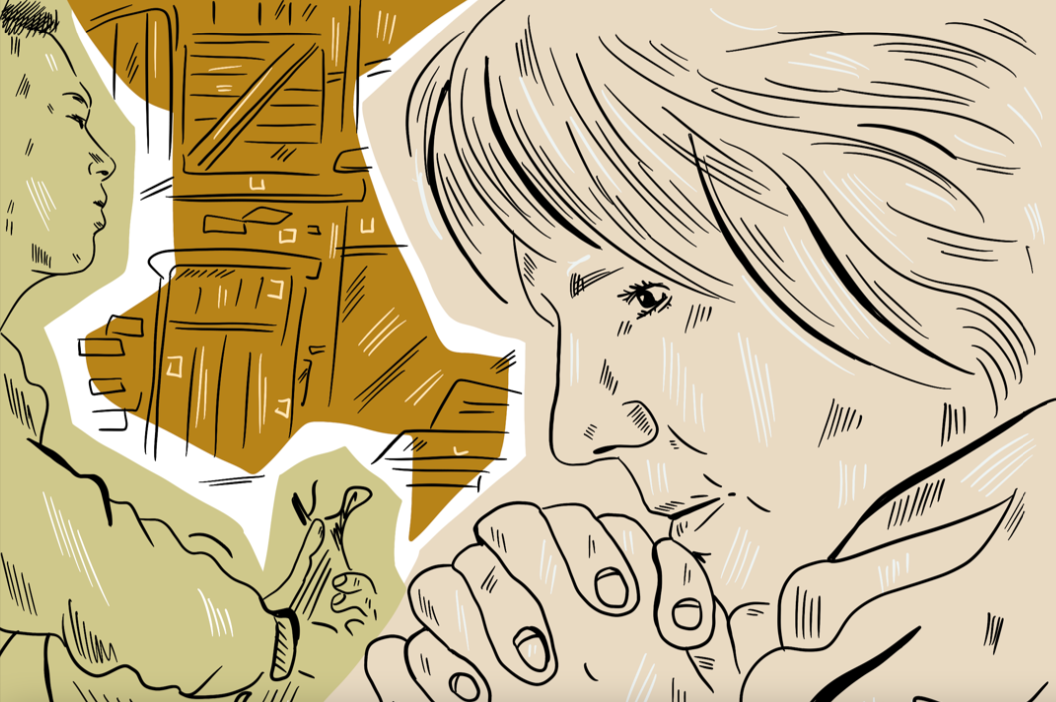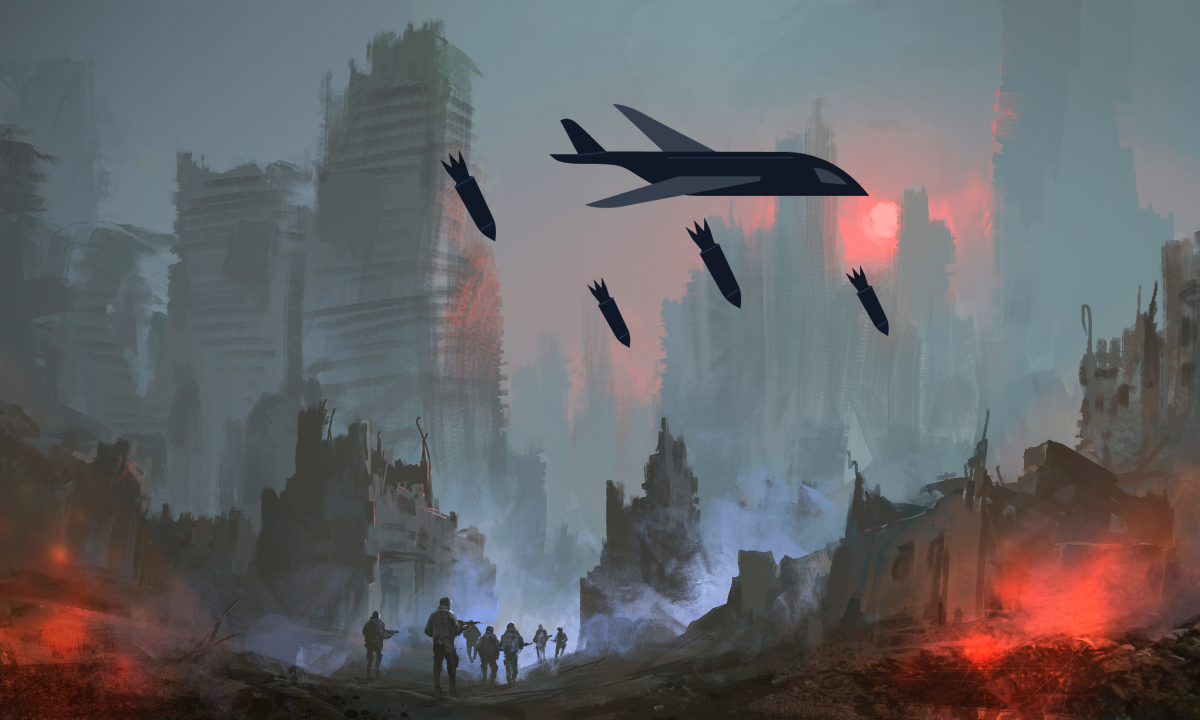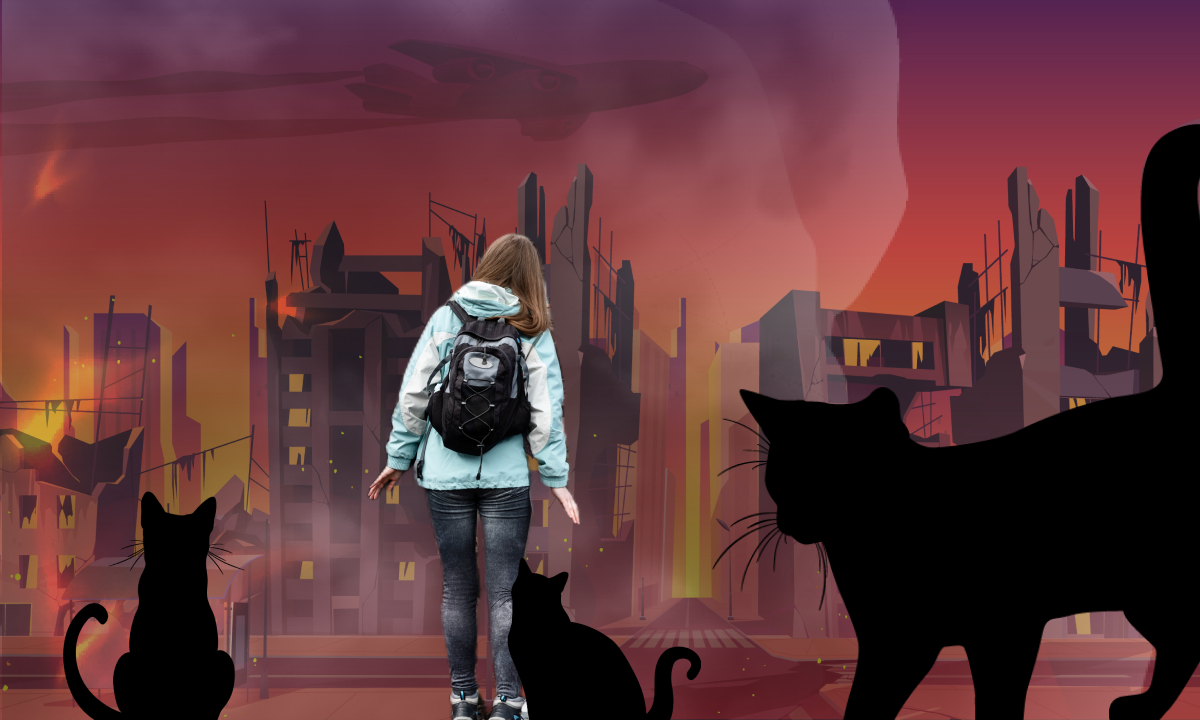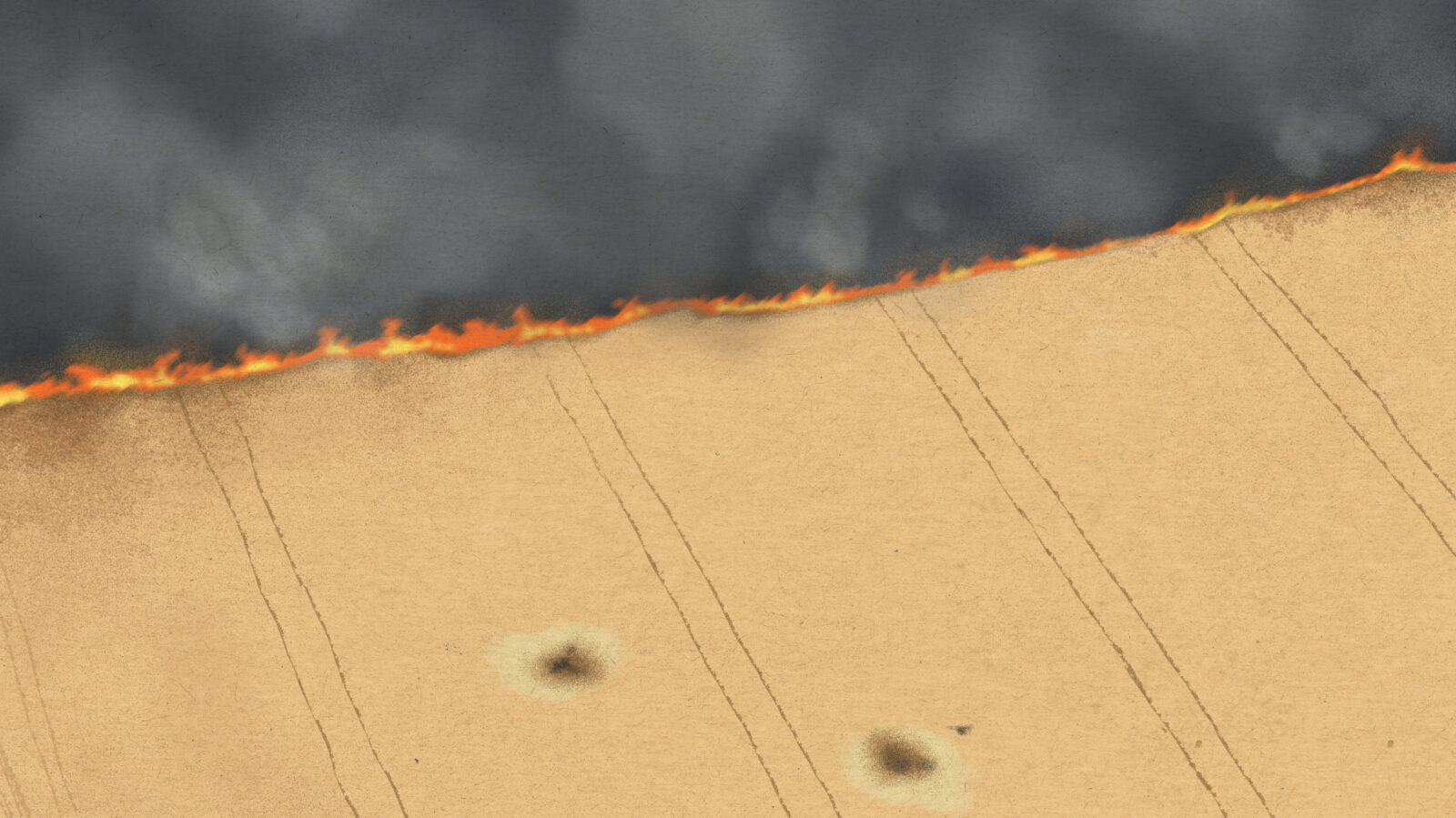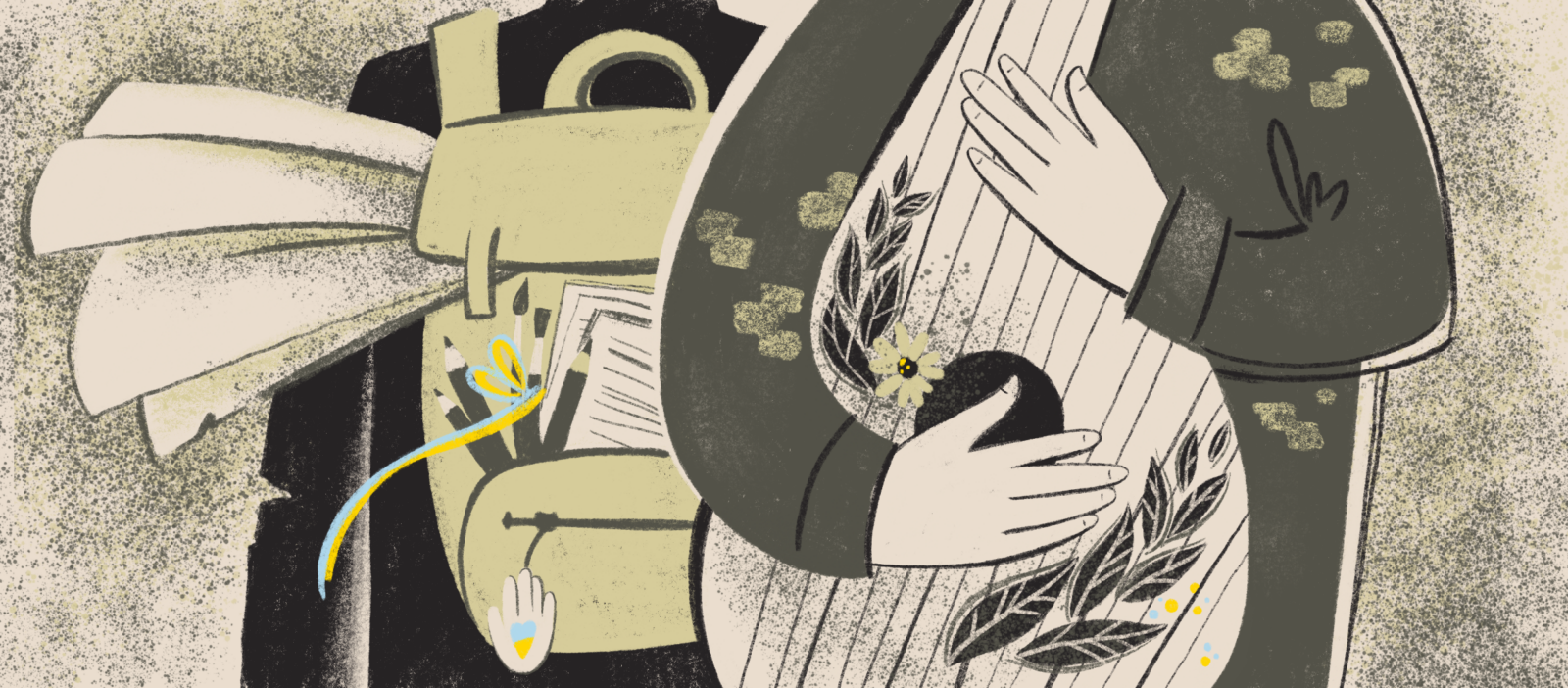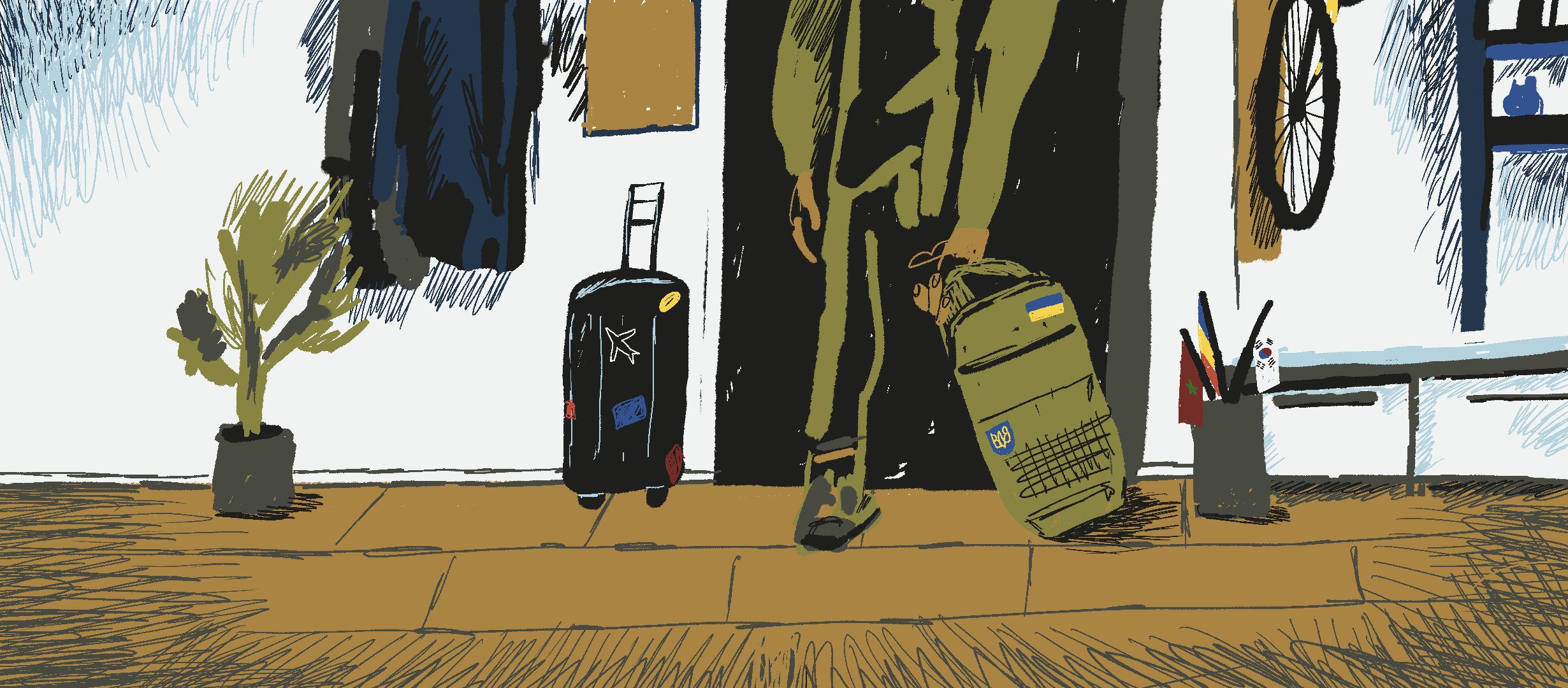Illustrated by Тanya Guschina
Mykyta Motalygin is about to turn 20. In his ordinary and peaceful life, he is a street musician. But during the first two weeks of the war, he hid from a bombardment in the basement, saw a photo of dead acquaintances, and fled from Volnovakha which had turned into hell.
Despite it all, he sounds calm.
He recalls that he almost missed the beginning of the war. Only when a friend texted him, “It’s banging near you, isn’t it?”, he paused a computer game and opened the window. Mykyta heard a distant “bang!”.

However, it was calm in the city for the next two days. There were military vehicles on the streets, but nobody knew whose. And then they started shelling. People tried to live with it as humbly as possible. Mykyta says it doesn’t matter whether you are at home or running to the bomb shelter. It is scary anyway.
“It’s such a terrible feeling. It feels like it is flying right at you. But it falls somewhere far. Even if it’s not that close, it’s loud and highly unpleasant. It’s not because you are scared. It’s because you are helpless. You can’t control whether it hits you or not.”
Mykyta and his parents lived in a private 3-storey house. When the electricity and water supply were cut off, the boy remained calm. He was sure they had everything necessary at home, and the utilities would be restored soon. His composure flew away when a shell crashed half a kilometer from his home. “I opened a Telegram chat about Volnovakha and saw a picture. There was a woman with her head torn off. I knew her personally. She worked opposite my father at the local market.”
The shelling was getting more intense. They were shooting from tanks, Russian Grads, and fighter aircraft day and night. One day Mykola came into the kitchen to have a glass of water when suddenly a blast wave blew the windows out and broke a wall. The boy rushed into another room where the shell fell and smashed the entire wall. The family grabbed their papers, money and clothes and hid in the basement. They spent the entire night there.
“My mom prayed all the possible prayers, but it only irritated me.”
When everything calmed down, the family walked into their home through a hole in the wall. They wanted to take the essentials and go back to the bomb shelter. Later on, Mykyta’s elder brother ordered them to put a white piece of cloth on their car and leave the town as soon as possible. That’s how the family evacuated from their home, “hysterically waving a white rag.”
Mykyta’s parents are abroad now. The young man himself lives in Lutsk. He is sure that today’s events either break people or give them power.
“If I’ve survived until now, I can live, travel abroad, help my loved ones, and learn to enjoy my life and be in the moment. Why shouldn’t I take this chance?”

